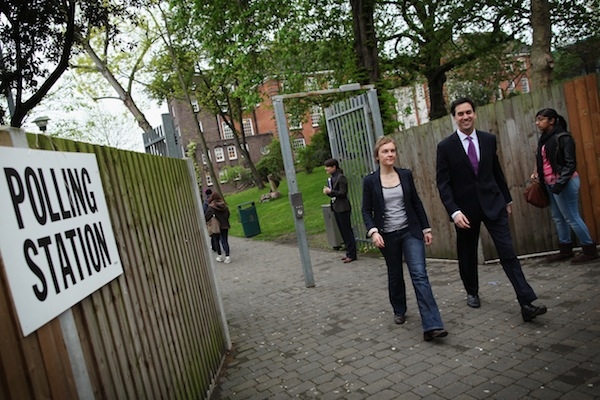Ed Miliband got it right. Faced with a fiasco in Falkirk, where the trade union, Unite, attempted to fix the Parliamentary selection process, the Labour leader has come out on the right side of the argument about political reform.
In our eagerness to attack him, we Conservatives are in danger of putting itself on the wrong side of the debate. Falkirk-type fixes have been going on for years. Safe Labour seats have been run as trade union fiefdoms for as long as anyone can remember.
What Falkirk demonstrates is not that tiny cliques have been manipulating party selections, but that that old school way of doing politics is no longer acceptable.
The fallout from Falkirk illustrates that deferential democracy is dead. The idea that 20,000 Labour supporters in that constituency should robotically troupe down to the polling booths on election day to endorse the Labour candidate selected for them by a tiny band of brothers will no longer do. Miliband, maybe because he feels the heat rather than because he sees the light, appears to have grasped this.
Unsurprisingly, Westminster pundits view the whole episode in terms of Ed’s relations with the trade unions – much as they only ever seem to write about Europe in terms of ‘Tory splits’. Yet what the pundits miss is that the Labour leader – however imperfectly – is proposing something big. He is advocating that for the first time ever, non-Labour party members should have a right to decide on who gets to be the Labour candidate.
Primary candidate selection is the one reform that could transform our moribund politics for the better. Not as good as ‘open primary’ candidate selection, where every voter is invited to help decide, Mr Miliband’s ‘closed primary’ system will still have big implications.
All of a sudden, political wannabes won’t simply need to know the right people, and have a couple of years as a special adviser on their short CV. In order to get the candidacy, you might actually have to have done something with your life besides toady up in SW1. With primary candidate selection, politicians will have to answer outward to the people, not simply inward to the party bosses.
If you use a system of registered online supporters help decide who gets to be the candidate, you are likely to see a lot more registered online supporters. For political parties, whose membership has been in free fall for years, this idea of online members and supporters – or iMembers, I like to call them – is a potential game changer.
Until a couple of years ago, we Conservatives seemed to understand all this. Indeed, it was our party that pioneered the use of open primaries in Totnes, Gosport and for the London mayoral election.
But then, abruptly, we stopped. We told ourselves that the process was too costly (it need not be), or too cumbersome (it isn’t), or too something or other. Inertia always finds a reason.
So now Ed Miliband has taken up our idea – and weirdly a Tory spokesman today denounced primary selection on the grounds that it would make it easier for trade unions to manipulate candidate selection. They are wrong.






Comments